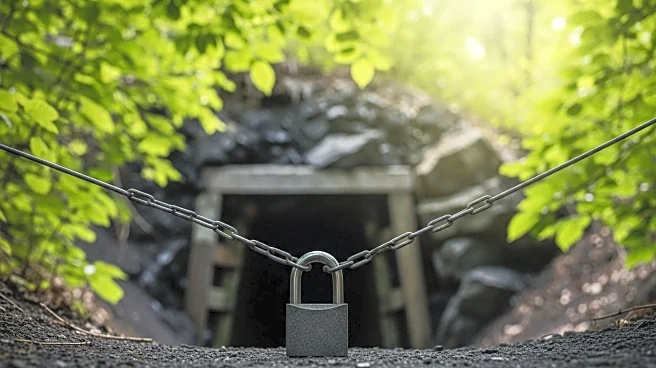What's Happening?
The Czech Republic has announced plans to close its last hard-coal mine by 2026, as part of a broader strategy to eliminate coal mining and combustion by 2033. The decision aligns with the government's goal to transition to more environmentally friendly energy sources. The closure will affect the Moravia-Silesia region, historically known as the 'boiler room' of Europe. The move is expected to lead to job losses and demographic shifts, as young people may leave the region for urban areas. The closure will leave Poland as the EU's only hard coal producer.
Why It's Important?
The closure of the last hard-coal mine in the Czech Republic marks a significant step in the country's transition away from fossil fuels. This decision reflects a growing trend in Europe towards sustainable energy solutions and could influence other countries to follow suit. The move is likely to have economic and social implications, including job losses and potential economic decline in the affected region. However, it also presents opportunities for investment in renewable energy and green technologies, which could create new jobs and drive economic growth in the long term.
What's Next?
As the Czech Republic phases out coal mining, the government plans to transform the region into a green industrial zone, potentially including the construction of a lithium battery gigafactory. This transition will require careful planning to address the economic and social impacts on local communities. The government may need to provide support for workers affected by the mine closure and invest in retraining programs. The success of this transition could serve as a model for other regions facing similar challenges as they move away from fossil fuels.










